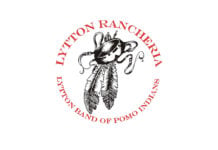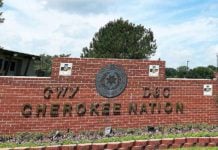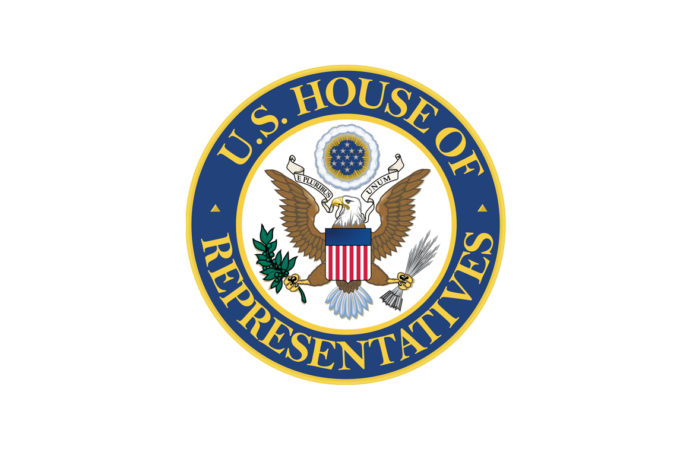WASHINGTON, D.C. – As much of the U.S. continues to experience extreme drought and many communities continue to lack access to clean drinking water, U.S. Representative Melanie Stansbury (NM-01), member of the House Natural Resources Subcommittee on Water, Oceans, and Wildlife and Subcommittee for Indigenous Peoples introduced the bipartisan WaterSMART (Sustain and Manage America’s Resources for Tomorrow) Access for Tribes Act. Additional Representatives signing onto the bill include Leger Fernández (NM-03), Steven Horsford (NV-04), Ruben Gallego(AZ-07), Jared Huffman (CA-02), Tom Cole (OK-04), Grace Napolitano (CA-32), Joe Neguse (CO-02), and Jim Costa (CA-16).
The WaterSMART Access for Tribes Act gives the Secretary of the Interior the authority to waive or reduce cost-share requirements to implement drought and water projects under the Bureau of Reclamation’s WaterSMART program. To date, fewer than five percent of the projects funded under WaterSMART since its inception in 2010 have been led by tribes or Pueblos. Rep. Stansbury is introducing the legislation in response to testimony submitted before the House Committee on Natural Resources from several witnesses, including the National Congress of American Indians, the Colorado River Indian Tribes, and the Ute Indian Tribe of the Uintah and Ouray Reservation on the need to make these funds more accessible to address tribal water needs.
“Water is fundamental to the health, well-being, economic, and cultural needs of our Indigenous communities,” said Rep. Stansbury. “For far too long, federal programs like the WaterSMART program have included cost-share requirements that have acted as barrier to tribes accessing crucial water infrastructure dollars. This bill addresses those barriers, and along with funding in the bipartisan infrastructure law and Build Back Better Act, will help unlock millions of dollars to support tribal water needs. Addressing these needs is crucial to responding to drought and the lasting impacts of climate change and decades of underinvestment in tribal water needs.”
“From Gallup to Dulce to Taos, tribal communities across New Mexico continue to suffer from increased droughts and rising temperatures due to climate change,” said Rep. Leger Fernández. “The WaterSMART Access for Tribes Act will meet tribal communities where they are to provide long-term solutions for their water needs. I’m proud to support this bill that will help tribes pursue a sustainable and equitable water future. We know that Agua es Vida.”
“Clean, affordable drinking water is a human right,” said Rep. Horsford. “As Western states confront historic drought caused by the climate crisis, the WaterSMART Access for Tribes Act will help tribal governments access funding for important water management projects. Alongside the Infrastructure Investment and Jobs Act, this bipartisan bill is an important step forward to lower the cost of water conservation and protect our precious water resources for years to come.”
“The climate crisis is causing severe drought throughout the West, and as we look to best manage increasingly limited resources, we have an obligation to make sure we do so equitably,” said Rep. Huffman. “Everyone in America deserves access to clean, reliable water – but the cost-share requirements under WaterSMART are often a barrier for tribes. Our bill makes the necessary changes so tribes can access this important federal funding, and I’m grateful to Rep. Stansbury for leading the charge.”
“Abundant, safe and reliable supplies of water are critical to quality of life for tribal communities,” said Congressman Tom Cole, Co-Chair of the Congressional Native American Caucus and a member of the Chickasaw Nation of Oklahoma. “By removing certain financial barriers, tribes will have more opportunities for improving water infrastructure and conservation practices. These WaterSMART initiatives will not only ensure access to clean drinking water but greatly improve the lives and health of current and future generations.”
“WaterSMART grants help farmers, cities, and tribes conserve water,” said Rep. Jim Costa. “This legislation will help make access to this program more equitable for tribes in areas prone to severe drought.”
The WaterSMART Access for Tribes Act builds on Rep. Stansbury’s career in water and sustainability. As a state legislator in the New Mexico House of Representatives, Rep. Stansbury passed a number of key pieces of legislation on climate and water, including the bipartisan Water Data Act, which created a nationally-leading framework for leveraging the power of data to transform water management. The success of the Water Data Act has attracted partnerships across the state and the country, including the WaterSMART program and other federal, state, tribal and local entities, research institutions, and non-profit organizations.
The WaterSMART program consolidates several water conservation authorities under the Bureau of Reclamation to support water conservation, water-use efficiency, drought planning, and water reuse and recycling projects.













































